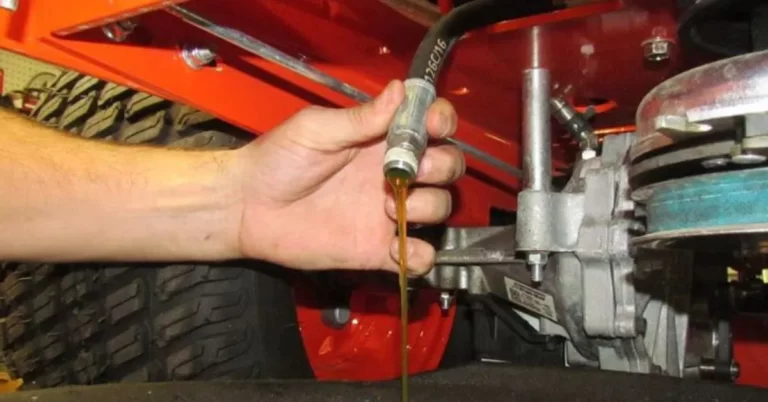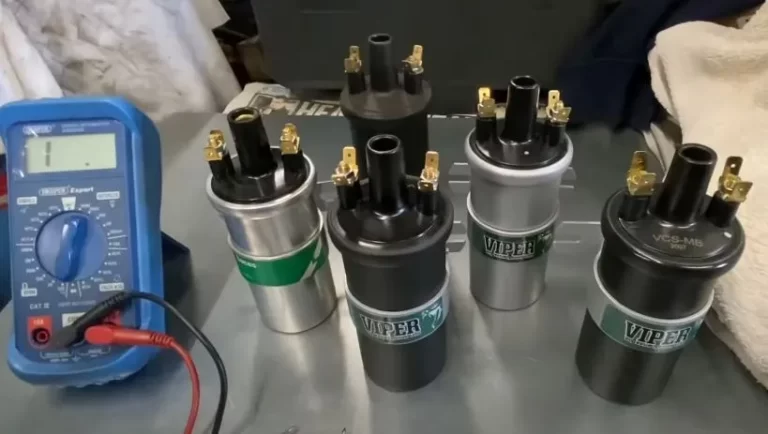How Much Does A Zero Turn Mower Weigh? (Expert Guide)
Do you want to know how much does a zero turn mower weigh? If you’re in the market for a new mower, you must know the weight of the model you’re considering.
The weight of a zero-turn mower can vary widely depending on factors like engine size, cutting deck size, and frame material.
Residential zero-turn mowers typically weigh from 300 to 800 pounds (136 to 363 kg). However, commercial models can weigh 1,500 pounds (680 kg) or more.
The weight of a zero-turn mower can impact everything from its maneuverability to its fuel efficiency.
I’ll provide all the information you need about zero-turn mower weight in this expert guide.
I’ll discuss why weight matters, what influences it, and how to choose the right weight for your needs.
So, let’s get started without any further delay!
Why Weight Matters When Choosing A Zero Turn Mower?
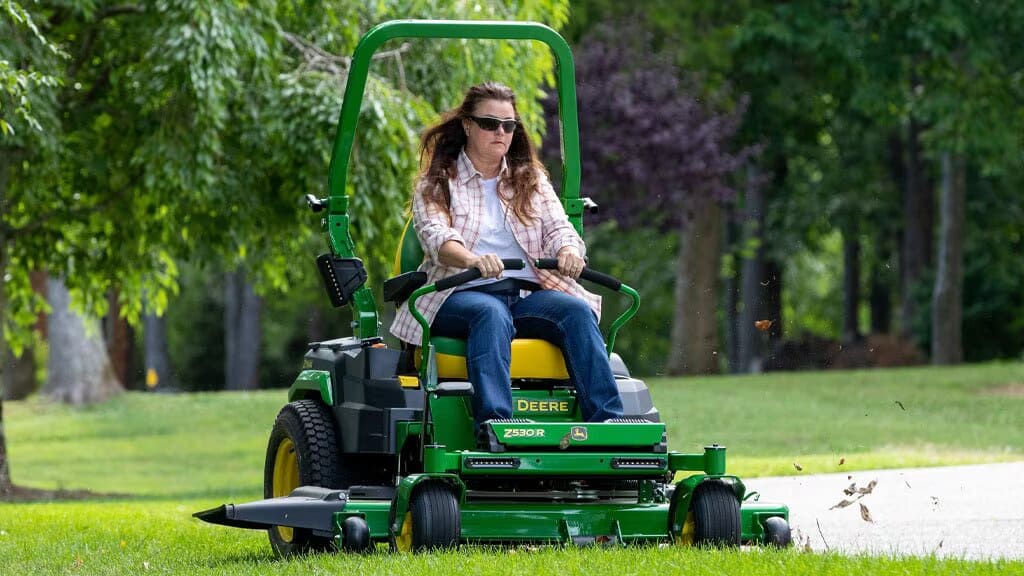
When choosing a zero-turn mower, weight is an important consideration.
A heavier mower can be more challenging to maneuver and operate. But it can also offer better performance and fuel efficiency.
On the other hand, a lighter mower can be more comfortable to operate. However, it may not perform as well on hilly or uneven terrain.
Here’s why weight matters for a zero-turn lawn mower:
1. Maneuverability And Ease of Use
The weight of a zero-turn mower can impact its maneuverability and ease of use.
A heavier mower can be more challenging to turn and maneuver in tight spaces, while a lighter mower can be more comfortable to operate.
However, a lighter mower may provide less stability and control than a heavier mower.
When choosing a zero-turn mower, consider the size of your lawn maneuverability you need.
2. Performance And Fuel Efficiency
The weight of a zero-turn mower can also impact its overall performance and fuel efficiency.
A heavier mower can provide better traction and stability, improving its cutting performance on hilly or uneven terrain.
It can also provide better fuel efficiency since it doesn’t need to work as hard to cut the grass.
However, a heavier mower can be more expensive and more challenging to transport.
Also Read: How Much Does A Lawn Mower Weigh? (Detailed Guide)
What Determines A Zero Turn Mower’s Weight?
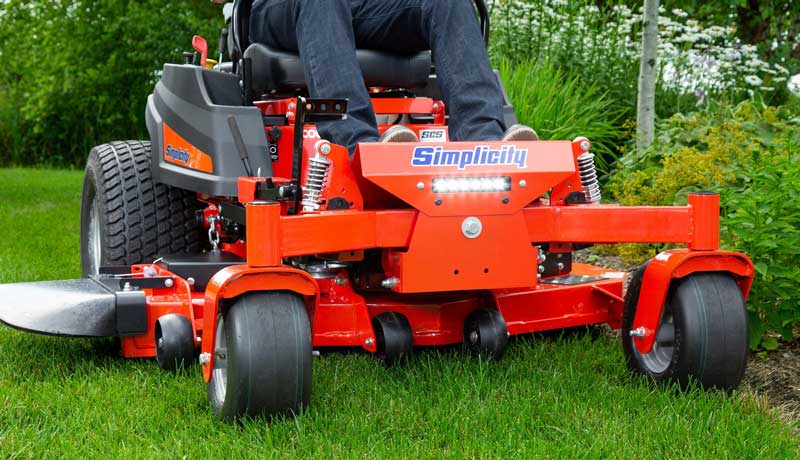
Several factors determine the weight of a zero-turn mower. These include the engine size and type, cutting deck size and material, and frame and chassis material.
A larger engine and cutting deck will generally increase the weight of a mower, as will a heavy-duty frame and chassis.
Let me explain each factor one by one to make it clearer!
Engine Size And Type
The engine size and type are the primary factors that determine a zero-turn mower’s weight.
Larger engines and more powerful engines generally weigh more than smaller engines.
Cutting Deck Size And Material
The cutting deck size and material contribute to a zero-turn mower’s weight.
A larger cutting deck will increase the weight of a mower, as will a cutting deck made from heavy-duty materials.
Frame And Chassis Material
Finally, the frame and chassis material can impact a zero-turn mower’s weight.
Mowers with a heavy-duty frame and chassis will generally weigh more than lighter ones.
Average Weight of Different Types of Zero Turn Mowers
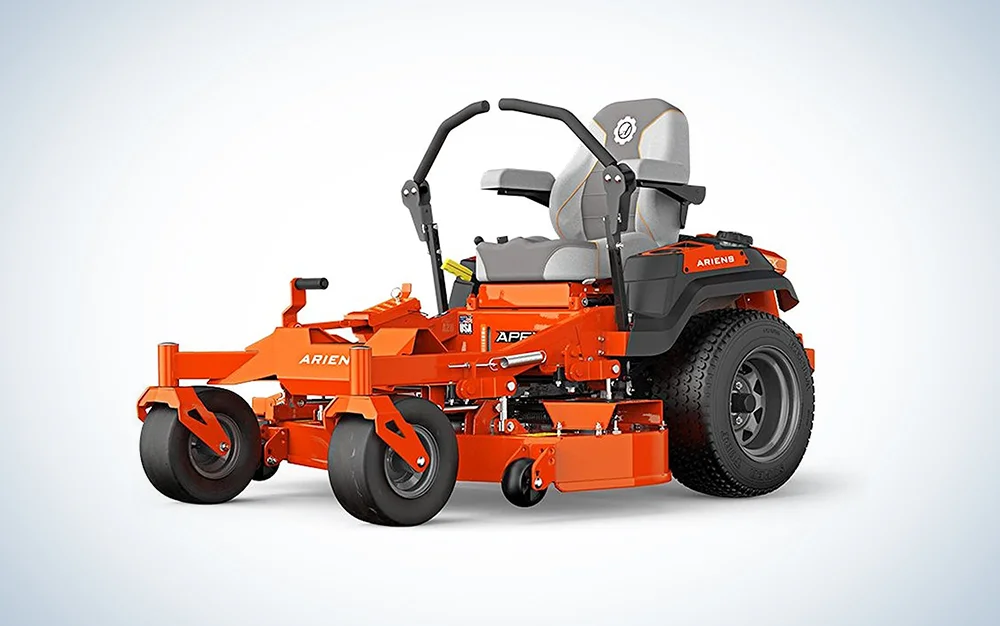
Looking for a zero-turn mower that meets your needs? One of the most important factors to consider is the mower’s weight.
The average weight of different types of zero-turn mowers can vary widely.
Here is an overview of the average weight of different types of zero-turn mowers:
Residential Zero Turn Mowers
Residential zero-turn mowers are typically designed for smaller lawns and lighter use.
As such, they tend to be lighter and more maneuverable than commercial models.
The average weight of a residential zero-turn mower is between 300 and 800 pounds (136 to 363 kg).
However, some lightweight models can weigh less than 300 pounds (136 kg).
Commercial Zero Turn Mowers
Commercial zero-turn mowers are designed for heavy-duty use on large properties. This makes them heavier and more durable than residential models.
The average weight of a commercial zero-turn mower is between 1,000 and 1,500 pounds 453 to 680 kg). But some models can weigh up to 2,000 pounds (907 kg) or more.
How To Choose The Right Weight For Your Needs
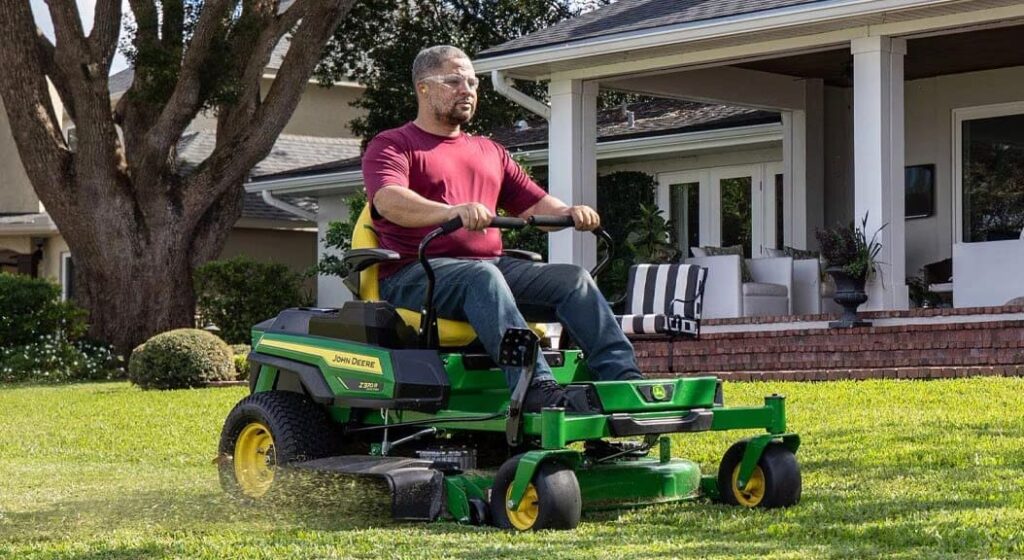
When choosing the right weight for your zero-turn mower, there are several factors you should consider. These include:
- The size of your lawn
- The terrain you’ll be mowing
- Your experience and skill level
- Storage and transport needs
A lighter mower may be more suitable for smaller lawns with level terrain. However, you may need a heavier and more powerful mower for large lawns with hilly terrain.
Similarly, experienced operators can handle heavier mowers more easily than novice operators.
Finally, a lighter model may be more convenient if you need to transport or store your mower frequently.
Also Read: How Much Gas Does a Lawn Mower Use? (Guide 2023)
Frequently Asked Questions (FAQs)
What is the heaviest zero-turn mower?
The WZ 1000 zero-turn mower is the heaviest, weighing 3,395 pounds (1540 kg). It’s the world’s largest mower and performs equal to five small push mowers.
How heavy are zero-turn mowers?
On average, zero-turn mowers weigh from 250 to 2000 pounds (113 to 907 kg). And it depends on the type of lawn mower you want to consider.
How much do zero-turn lawn mowers cost?
It depends on the type. Residential zero-turn mowers typically range from $3,000 to $5,000. However, commercial ones can go for up to $10,000.
Conclusion
The weight of a zero-turn mower is an important consideration when choosing a new mower.
It can greatly impact everything from the mower’s maneuverability to its performance and fuel efficiency.
When choosing a zero-turn mower, consider the weight of the specific model you want and your needs as an operator.



